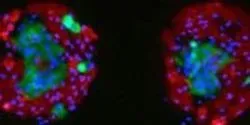Cell & Tissue Culture

The most significant equipment-related trend in bioprocessing over the past 15 years has been the replacement of reusable glass and steel equipment by single-use plastics.
| 5+ min read

The vast majority of the thousands of chemicals in our homes and workplaces have not been tested to determine if they cause cancer. That’s because today’s options are lacking. Rodent tests are too slow, and cell culture tests don’t replicate how cells interact in the body, so their relevance to cancer is limited. Scientists from the U.S. Department of Energy’s Lawrence Berkeley National Laboratory (Berkeley Lab) have set out to change that.
| 2 min read

















